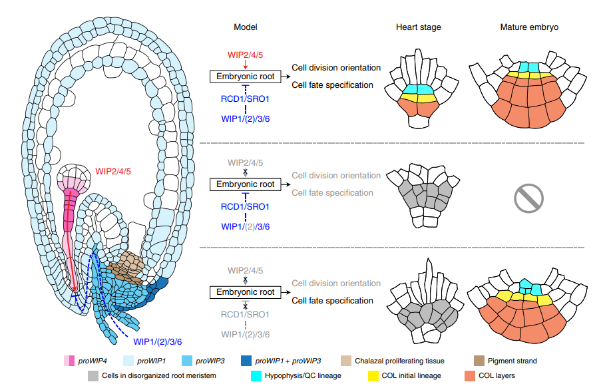WIP genes and embryonic root development
Spatially expressed WIP genes control Arabidopsis embryonic root development
Development of plant organs is a highly organized process. In Arabidopsis, proper root development requires that distinct cell types and tissue layers are specified and formed in a restricted manner in space and over time. Despite its importance, genetic controls underlying such regularity remain elusive.
In a study published in Nature Plants, researchers from the FLOCAD team at IPS2 found that WIP genes expressed in the embryo and suspensor functionally oppose those expressed in the surrounding maternal tissues to orchestrate cell division orientation and cell fate specification in the embryonic root, thereby promoting regular root formation. The maternal WIPs act non-cell autonomously to repress root cell fate specification through SIMILAR TO RADICAL-INDUCED CELL DEATH ONE (SRO) family members. When losing all WIPs, root cells divide irregularly in the early embryo, but this barely alters their fate specification and the morphology of post-embryonic roots.
Overall, this study reveals cross-communication between the embryonic and maternal WIPs in controlling root development.

28/06/2022
